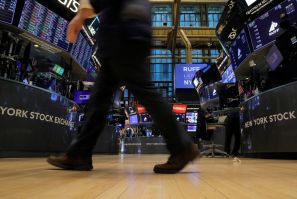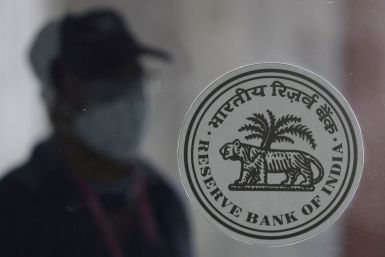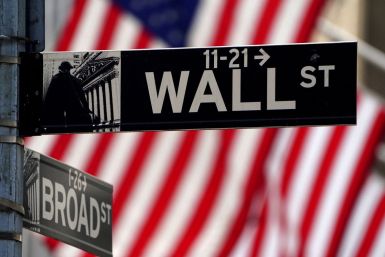The Russian and Belarusian operations of Raiffeisen Bank International (RBI) posted the sharpest gains in profit among its subsidiaries in the first half, figures on Tuesday showed, even as the Austrian bank weighs a possible withdrawal from the region.
Japanese Finance Minister Shunichi Suzuki on Tuesday reiterated the need for currencies to move stably reflecting fundamentals, describing recent yen swings as "hectic", highlighting the complication for authorities in responding to sharp currency moves.
The Reserve Bank of India will hike its key interest rate on Friday, economists polled by Reuters said, but there was no consensus on the size of the move given the absence of any clear guidance from the central bank.
Global stocks slipped and bond yields fell on Tuesday, compounding fears of a global recession, on concern that a visit by U.S.
Asia stocks tumbled on Tuesday as jitters about an escalation in Sino-U.S.
Asia stocks continued a decline from Wall Street on Tuesday, and U.S.
Stocks slipped and bond yields fell on Tuesday on worries a visit by U.S.
U.S. stocks ended a choppy session lower on Tuesday, while the dollar rallied as risk appetite was dampened by economic uncertainties and escalating U.S.-China tensions.
U.S. stocks were mixed in choppy trading on Tuesday, while the dollar rallied in a risk-off session driven by economic uncertainties and simmering U.S.-China tensions.
The dollar continued its decline on Tuesday, falling to its lowest in two months against the recovering Japanese yen and losing ground on other peers, as investors continued to position for a less aggressive pace of Federal Reserve interest rate hikes.
The dollar strengthened sharply against the Japanese yen on Tuesday as remarks by U.S. Federal Reserve officials hinted that more interest rate hikes are coming in the near term.
The yen was up slightly against the dollar Tuesday, adding to recent gains as increasing tensions over U.S.
South Korea's consumer inflation sped up to a nearly 24-year high in July, data showed on Tuesday, supporting the market's view for further central bank tightening this year.
Japan's average minimum wage is set to rise at a record pace this year, the government said on Tuesday, a positive development for Prime Minister Fumio Kishida's efforts to cushion households from global commodity inflation.
U.S. manufacturing activity slowed less than expected in July and there were signs that supply constraints are easing, with a measure of prices paid for inputs by factories falling to a two-year low, suggesting inflation has probably peaked.
Global thematic funds are facing heavy outflows this year as investors' fascination fade with such assets, most of which are closely correlated with economic growth.
U.S. manufacturing activity slowed less than expected in July and there were signs that supply constraints are easing, with a measure of prices paid for inputs by factories falling to a two-year low, suggesting inflation has probably peaked.
Pakistan's annual consumer price inflation reached 24.9% in July, up from 21.3% in June and the highest in 14 years, the statistics bureau said on Monday.
The Bank of England is now expected to lift borrowing costs by a bigger 50 basis points to 1.75% on Thursday as it battles soaring inflation, according to a Reuters poll taken over the past week after several economists changed their minds.
Wall Street ended lower after a choppy session on Monday, with declines in Exxon Mobil and other energy companies weighing against gains in Boeing as investors digested the U.S.
Wall Street fell on Monday, with declines in energy companies weighing against gains in Boeing as investors digested the U.S. stock market's biggest monthly gains in two years.
The Dow and the S&P 500 fell in volatile trading on Monday as a strong earnings-driven rally from last week lost steam, with losses in economy-sensitive sectors being countered by gains in shares of Boeing and Tesla.
Nepal sees no need to approach the International Monetary Fund (IMF) for a fresh loan as pressure on foreign exchange reserves is easing after a pick up in tourism, its central bank governor said on Monday.
As high inflation forces Americans to spend more on gas and bills, young and low-income consumers are starting to feel financial pressure.
Indonesia's inflation accelerated to its highest in seven years, above the central bank's target range, while core inflation remained within target, official data showed on Monday, triggering calls for an interest rate hike.
Indonesia's inflation accelerated to a seven-year high driven by soaring food prices, data showed on Monday, sparking calls for an interest rate hike, though the central bank governor signaled he was unperturbed as core inflation remained low.
Factories across Asia and Europe struggled for momentum in July as flagging global demand and China's strict COVID-19 restrictions slowed production, surveys showed on Monday, likely adding to fears of economies sliding into recession.
China's wobbly economy stumbled further at the start of the second half of the year, with factories unexpectedly switching back to the slow lane, a slump in the property sector deepening and job cuts still a widespread menace.
The U.S. dollar sank to its lowest in more than six weeks versus the Japanese yen on Monday as investors ramped up bets that aggressive Federal Reserve monetary policy would tip the economy into a recession.
The dollar sank to a fresh six-week low to the yen on Monday as markets continued to wager that the Federal Reserve has less tightening to do with the U.S.





































